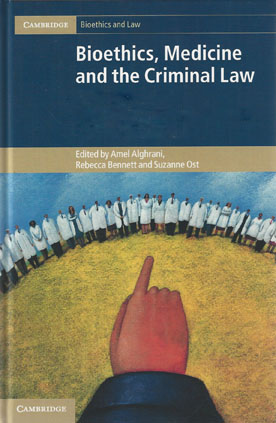
Through socio-legal, theoretical, comparative and historical analysis, case studies and empirical research, this three-volume set offers balanced arguments which help the reader form a reasoned view on the ethical legitimacy of the invocation and use of criminal law to regulate medical practice and bioethical issues.
To date, little analysis exists of the criminal process's role in regulating medical practice, its role as an arbiter of bioethics, or its ability to serve as an appropriate forum for judging ethical medical dilemmas. The books analyse how effectively the criminal law can and does operate as a forum for resolving ethical conflict in the contexts of health care, scientific research and biotechnologies.
Key questions that are addressed include: how does criminal law regulate controversial bioethical areas? What effect does the use of criminal law have when regulating bioethical conflict? Can the law accommodate moral controversy? And are bioethics and criminal law compatible?